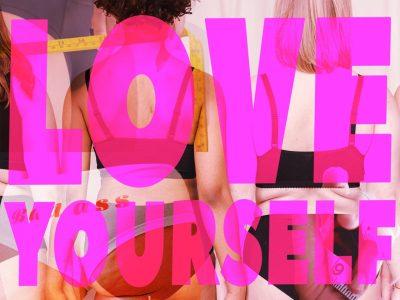Being body positive is a subjective concept. Not one person has the same definition of what loving yourself should look like. The “body positivity” movement — a movement about accepting yourself no matter what size, color or gender — has become increasingly popular in recent years.
But the increase in popularity comes with a rise in confusion over the message behind the movement.
The essence of body positivity has unfortunately been lost due to a shift in focusing on specific body images within the movement. The controversy that has surrounded bigger people in the movement has been so concentrated on that other body types have been shut out and looked down upon.

Paradoxically, the body positivity movement has grown superficial. The building blocks of societal beauty standards have seeped into the self-love conversation, so instead of promoting that every body is beautiful, the movement is emphasizing that you should be and feel beautiful.
Beauty is seen through so many different lenses, but the idea of not being beautiful and just living and existing is never acknowledged. Beauty is now seen as a necessity to living a good life, and the body positivity movement reinforces this ideology by telling us that we need to love ourselves to convince ourselves that we’re beautiful, so we can be seen as worthy of ourselves.
This warped way of thinking has been referred to as the “toxic body positivity” movement. If your focal point is only the positive aspects of life and you’re dismissing any negative emotions, then you’re rejecting human nature. Body positivity has always had pure intentions, but the pressure it invites to only love oneself and never criticize is unrealistic.
If you go against the grain of loving yourself all the time and start to feel insecure, you are sometimes seen as a hypocrite who is feeding into the patriarchy, beauty standards and everything the movement rejects. You can’t love yourself with a full face of makeup on nor can you love your body when on a diet and exercising. All of these unspoken rules don’t give humanness a chance to breathe.
As soon as you step out of the strict expectations of body positivity, then you are apparently unworthy of being within the movement. You can be body positive and wear makeup, shave your armpit hair, get plastic surgery just like the ones at https://sculpmd.com/emsculpt-neo/ etc. You are allowed to do whatever you want to your body if it makes you feel better.
Trendy body positivity romanticizes every flaw you may have, morphing it into something aesthetically pleasing. Sometimes a scar is just a scar. It’s okay if your mark doesn’t have a backstory illustrating the journeys you’ve been on.
The movement itself pays a lot of attention to feelings and not reality, enforcing everyone to feel good about themselves. The movement tends to sensationalize people showing off their bodies as if it is a groundbreaking thing. In other words, the movement, coupled with the media, takes something normal and turns it into something “brave” or “a step forward” for body positivity.
An example of this could be a larger woman grazing the front cover of a magazine. Automatically, society views her as a courageous woman who should be so proud of herself for simply posing as a human being. Her normal body is sensationalized when she is just existing. This is also normalizing backhanded compliments. Saying “she’s so brave” or “normalize this” is suggesting that it wasn’t normal to begin with.
In the grand scheme of things, commenting on someone’s appearance and having an opinion is the gray cloud that shadows over the body positivity movement. The principles behind the movement is something that needs to be circled back to. As of now, the movement is incomplete.
Realism has been brushed aside in this contemporary age, and with the help of dismantling radical self-love, true self-acceptance can start to flourish. You don’t have to believe that your body is always beautiful or that everybody else’s too, but overall, every body, including your own, should be respected.
Body neutrality — the idea that you’re okay with your body and that you respect what it does for you, its functionality and protection — is perhaps an ideology that can be used more to take the pressure off.
You can’t make yourself love how you look. It’s okay to love yourself while wanting to improve yourself too. In a world where everyone has something to say, minding your business could be a great course of action. Imagine a world in which everyone kept to themselves and focused on their own self-development. Everything would be different.




















































































































